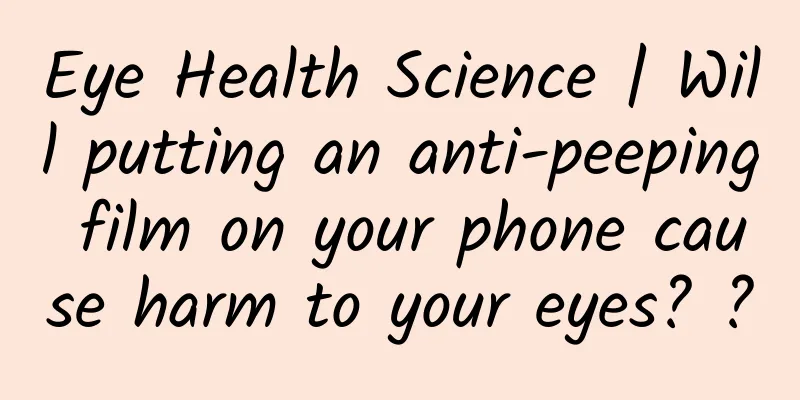Do I need to take medication for life after having a heart stent placed? Which medications can I stop taking? Which medications must I take for life?

|
I met a patient who was both "serious" and "confused" the other day: The patient was found to have 90% cardiovascular stenosis 3 years ago and had a heart stent implanted. The patient recovered well after the operation and did not experience any discomfort. This time he came to the hospital simply to review the cardiac angiography to see if there was any problem with the stent, just to be assured. The doctor rejected the patient's request, explaining: "After the heart stent is placed, if there are no discomfort symptoms, there is no need for routine follow-up angiography." But the patient's words made the doctor change his mind: "I feel relieved that there is no need for re-examination. I heard from others that long-term medication will damage the stomach, so I stopped taking the medicine after one and a half years. It seems that I have maintained myself well in the past few years." The doctor quickly said: "After the stent is placed, you need to take medication for life! You stopped taking the medication without permission. It is necessary to have a follow-up angiography!" Why do you need to take medication for life after having a heart stent? There are two main reasons: 1. Prevent the formation of thrombus in the stent, which may cause restenosis or even blockage in the stent; 2. Delay the occurrence of stenosis in other blood vessels. However, there are many types of drugs to take after stent implantation. Do you need to take these drugs for life? Let's take a look: 1. Lifelong use Antiplatelet drugs such as aspirin need to be taken for life to continuously inhibit the formation of thrombi in the stent and maintain the patency of the stent. Unauthorized discontinuation of medication, reduction of medication, or irregular medication use will increase the risk of thrombosis. 2. Take according to the course of treatment Newly implanted stents require enhanced antiplatelet therapy, so aspirin and clopidogrel are needed together, but after taking it for 1 to 1.5 years, you can take only aspirin to reduce the risk of bleeding caused by long-term high-dose medication. In addition, for acid-suppressing drugs that protect the appetite, the duration of medication should be determined according to the severity of the stomach disease, and it is not a lifelong medication. 3. Adjust dosage according to the condition Statins can stabilize plaques and lower blood lipids. When blood lipids are reduced to normal range, the dosage can be reduced under the guidance of a doctor to avoid the risk of liver and kidney damage caused by long-term high-dose statins. Studies have also shown that if blood lipids are reduced too low, there is an increased risk of cerebral hemorrhage. In addition, blood pressure fluctuates with the seasons, such as being high in winter and low in summer. Therefore, the dosage of antihypertensive drugs often needs to be adjusted with the seasons. Diuretics also need to be increased or decreased according to the severity of the patient's heart failure, minimizing the impact of diuretics on renal function. I am Dr. Zhang from the Department of Cardiology. If you like my popular science articles, please like them! Follow me to learn more about heart disease! You can also share this article with friends in need! |
>>: Oral cancer surgery follow-up
Recommend
What is the difference between cherries and cherries? Which one has higher nutritional value? How to wash cherries
Cherries are rich in water and sugar, so they are...
Office workers: How many days of leave do I need to take to undergo myopia surgery?
How many days of leave do I need to take for myop...
When is Maojian picked? How to pick Maojian
The freshly picked Maojian tea leaves are tender ...
The correct steps for night skin care
Every woman pays great attention to her appearanc...
The main reasons for scanty menstruation
Menstruation is the defense of women's reprod...
What does the minor fetal anomaly screening check include? Pregnant mothers must read
Eugenics has always been the goal pursued by mode...
Why can a masturbation cup only be used 50 times? How long is considered normal to use a masturbation cup?
Masturbation cups are a sexual product used by ma...
How long does it take to get on the ring?
Nowadays, many women choose to use an IUD as a co...
After pregnancy, I have not found the yolk sac. What is the situation? If I don't see the yolk sac, does it mean I am not pregnant?
Generally speaking, a yolk sac will form in the u...
What should women do when they have hot flashes during menopause?
It is very common to experience hot and dryness d...
What causes yellow watery vaginal discharge?
Leucorrhea is an indispensable topic of concern f...
Information for parents of children with epilepsy
Epilepsy is a chronic disease caused by abnormal ...
What medicine is better for treating cervical erosion?
Cervical erosion is a disease that makes many wom...
What to do if a woman has dry and peeling face
Dry and peeling face is very common in winter, wh...
Can ectopic pregnancy test paper detect
Ectopic pregnancy is actually what people call ec...









